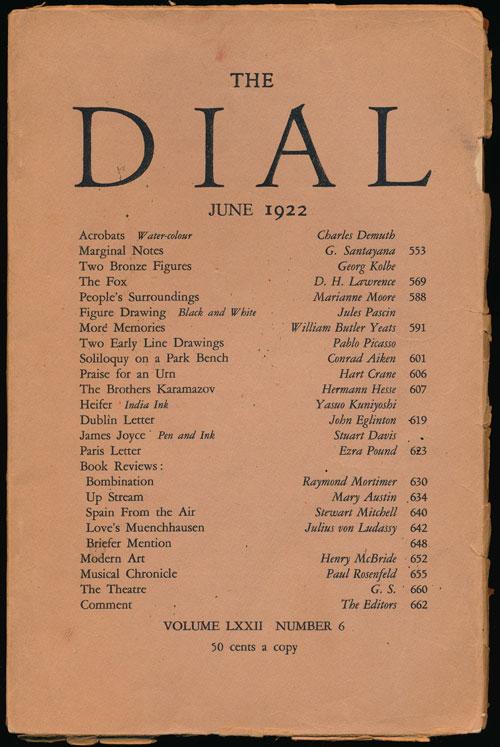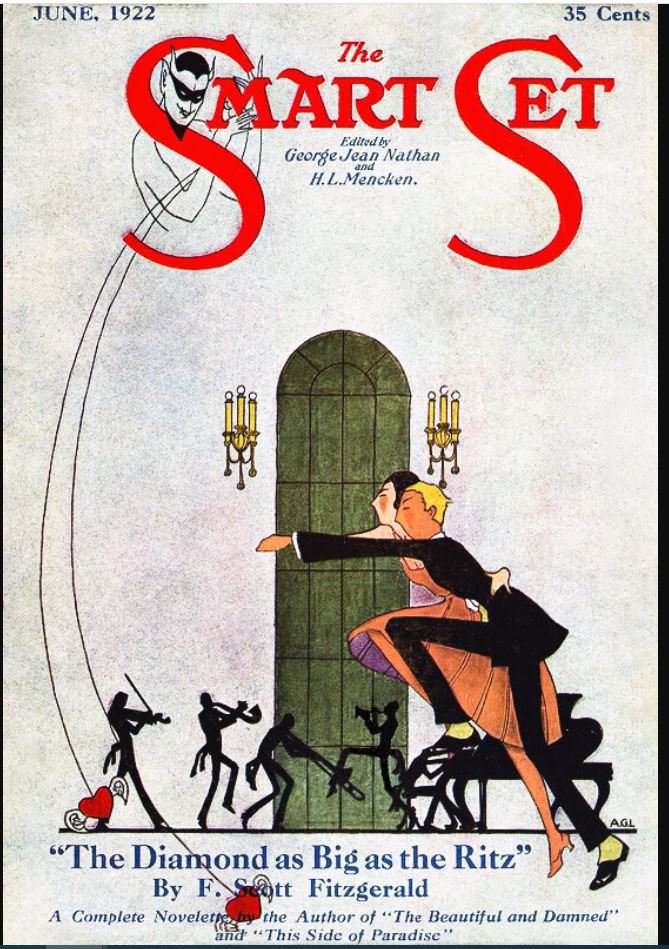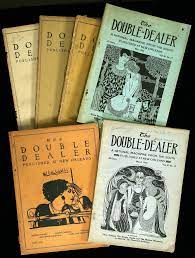This beautiful home, overlooking the city of Paris from one of its posh suburbs, is owned by the heirs of the late French opera composer, Charles Gounod. As they are experiencing some financial difficulties, the heirs are delighted to rent the three-story, rosy brick, walled property to the American ex-patriates Gerald, 36, and Sara Murphy, 40.
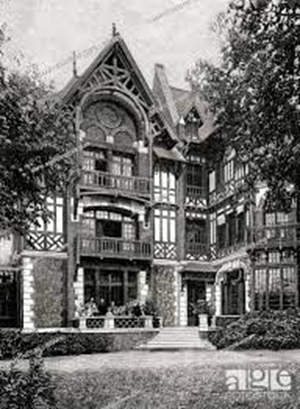
3 rue Gounod, Saint-Cloud, Paris
The Murphys are just as delighted to move in. They fell in love as soon as they saw it.
On Easter Sunday, they are hosting a luncheon and competitive Easter egg hunt on the broad lawn, under the oak trees. Their three children are hunting with both their grandfathers, visiting from America: Sara’s father, Frank Bestow Wiborg, about to turn 69, co-creator of the printers’ ink manufacturer Ault & Wiborg Company; and Gerald’s father Patrick Murphy, about 66, owner of the Mark Cross retail chain. Both children and adults are all dressed in their Sunday best.
Baoth, almost five, easily beats his brother, Patrick, three; their sister Honoria, six, is much more interested in the tin whistle from Grandfather than looking for eggs with her stupid brothers.
Gerald has been making quite a name for himself lately in Paris with his painting. In February, his 18-foot by 12-foot Boatdeck caused quite a stir in the Salon des Independents at the Grand Palais. There were so many complaints about its size, the organizing committee called a special meeting to toss it out, but a majority voted to keep it in. Two members of the committee resigned! (But were talked in to coming back the next day.)
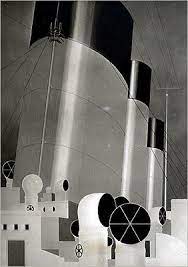
Boatdeck by Gerald Murphy in the Salon des Independents
In one of the many newspaper interviews he has given, Gerald is quoted as saying that he is
truly sorry to have caused such a bother with my little picture.”
After all, he points out, Boatdeck is smaller than an actual boat deck. The pieces he’s working on now, Razor and Watch, are not quite so large.
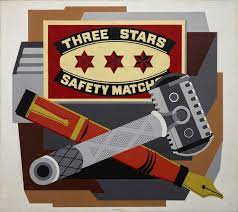
Razor by Gerald Murphy
The Murphys have welcomed friends new and old to this house on the hill overlooking Montmartre, with a view of the Eiffel Tower. Spanish painter Pablo Picasso, 42, has brought some British artists. Painters Vanessa Bell, 44, and Duncan Grant, 39, along with Vanessa’s husband, art critic Clive Bell, 42, came and all dined outside. The Murphys played Chinese music on the gramophone, and Picasso began sketching pictures of Chinese dancers’ feet, as he imagined them.
One of the main attractions of this home is the easy access to Paris city center. The train trip on the line from Versailles-Rive-Droite is only 15 minutes, and there are more than 50 trains each day. This makes it easy for the Murphys to go back and forth from their pied a terre on quai des Augustins.
*****
In their city apartment—with its view up and down the Seine, and large black and white vases holding flowers as well as stalks of light green celery—the Murphys have been meeting some more new friends.

23 quai des Grands-Augustins
American writer Donald Ogden Stewart, 29, comes by for dinner almost every night and reads aloud pieces of the comic novel he’s working on, Mr. and Mrs. Haddock Abroad, which has Sara in stitches. Sometimes he brings along novelist John Dos Passos, 28, and former Dial managing editor Gilbert Seldes, 31, who know each other from Harvard.
Stewart has also introduced the Murphys to an American couple whom he met at Yale, poet Archibald MacLeish, turning 32, and his wife, concert singer Ada Hitchcock MacLeish, 31. Mutual friends had helped the MacLeishes find a fourth floor walk up with no heat or hot water on Boulevard St. Michel where they’ve been living since arriving last fall.
When in the city, all these ex-pats pay late night visits to Zelli’s Royal Box in Montmartre. The jazz and the pretty young women are better than what you’ll find at last year’s hotspot, Le Boeuf sur le Toit. And arriving with the Murphys gets you a special seat.
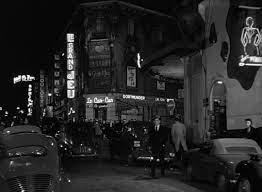
Montmartre jazz clubs
“Such Friends”: 100 Years Ago… is the basis for the paperback series, “Such Friends”: The Literary 1920s. Volumes I through IV, covering 1920 through 1923 are available at Thoor Ballylee in Co. Galway, and as signed copies at Pan Yan Bookstore in Tiffin, OH, City Books on the North Side and Riverstone Books in Squirrel Hill, Pittsburgh, PA. They are also on Amazon.com and Amazon.co.uk in print and e-book formats. For more information, email me at kaydee@gypsyteacher.com.
Mark your calendar! The Greater Pittsburgh Festival of Books returns to the Pittsburgh Theological Seminary in Highland Park on Saturday, May 11. Stop by the “Such Friends” booth in Writers’ Row.
This summer I will be talking about the literary 1920s in Paris and New York at the Osher Lifelong Learning Institute at Carnegie-Mellon University.
Manager as Muse, about Scribner’s editor Maxwell Perkins’ relationships with F. Scott Fitzgerald, Ernest Hemingway and Thomas Wolfe, is also available on Amazon.com and Amazon.co.uk in both print and e-book versions.
If you want to walk with me through Bloomsbury, you can download my audio walking tour, “Such Friends”: Virginia Woolf and the Bloomsbury Group.






















